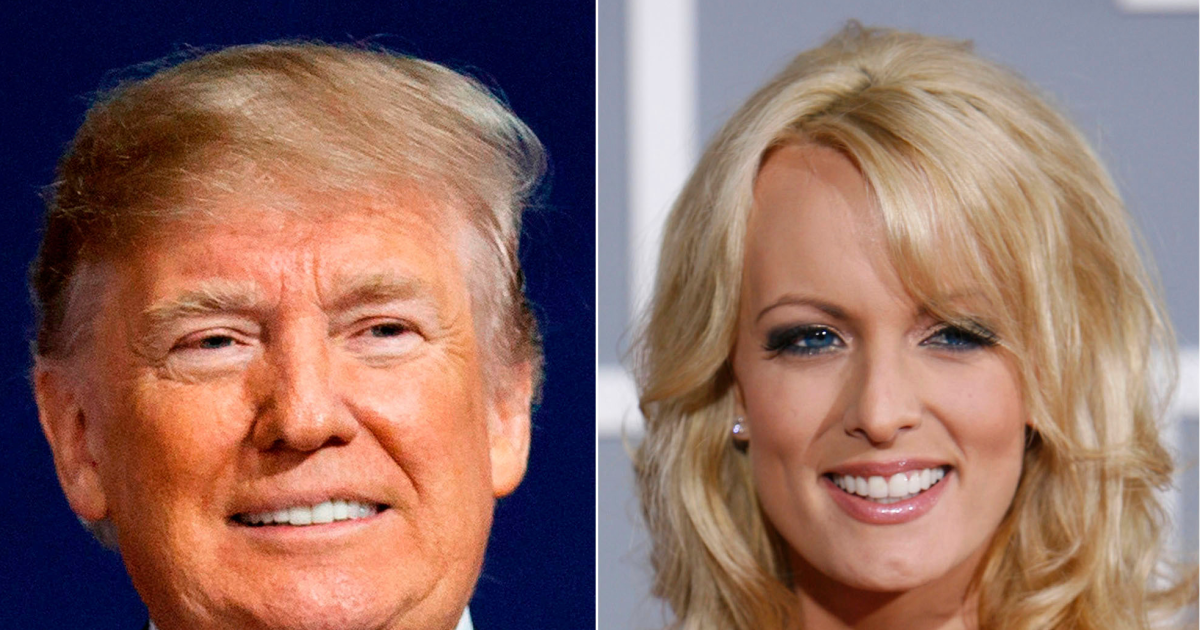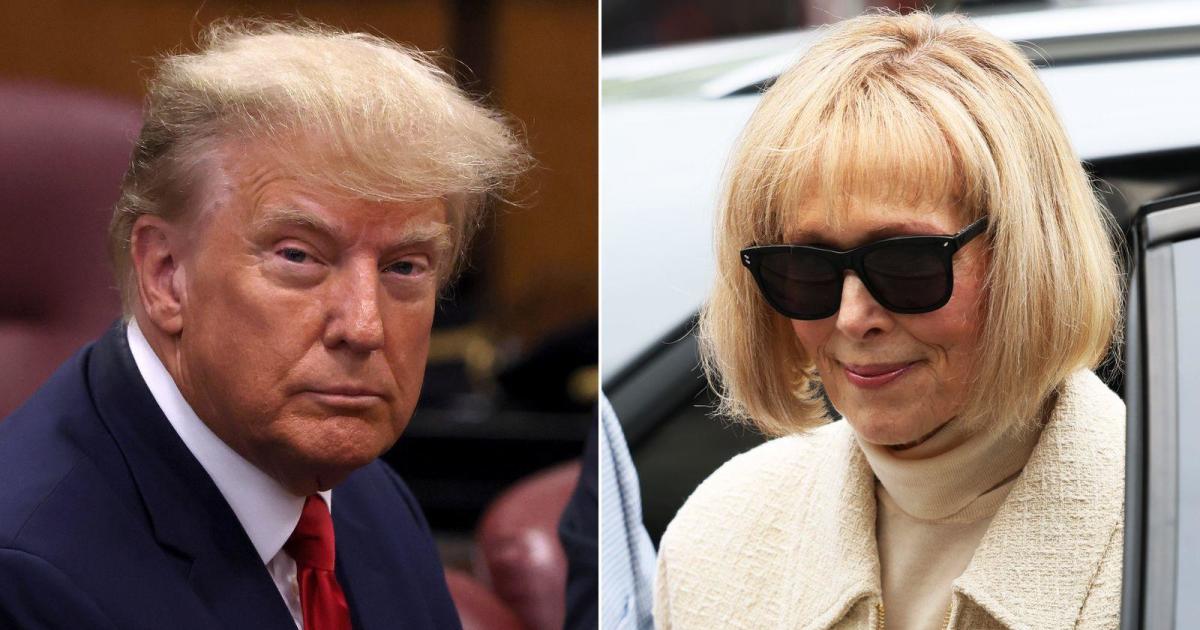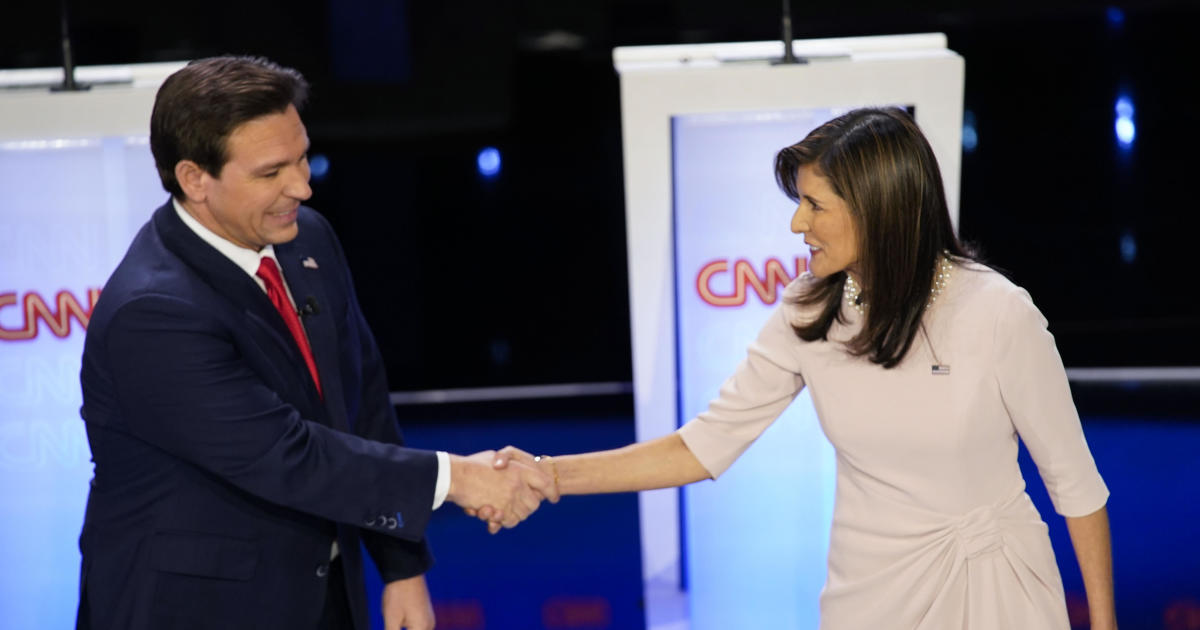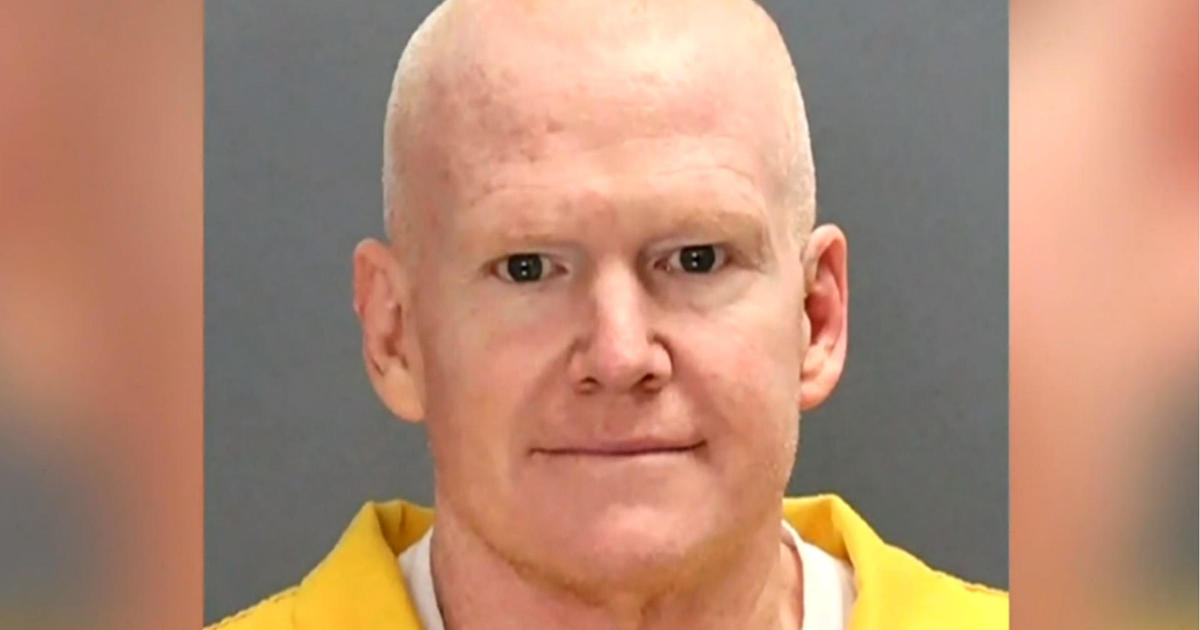Trump makes closing argument on final day of New York fraud trial, disregarding judge's restrictions
Former President Donald Trump disregarded restrictions imposed by the judge overseeing his civil fraud trial in New York and addressed the court during closing arguments on Thursday, raging against the state's attorney general and the judge himself for several minutes on the final day of proceedings.
One day before, Judge Arthur Engoron told Trump's attorneys that he would only be allowed to speak if he limited his comments to "relevant, material facts that are in evidence, and application of the relevant law to those facts." His legal team did not agree to the conditions.
Trump attorney Christopher Kise raised the issue again in court, and the judge asked if he would abide by the limits. Trump began speaking, and Engoron allowed him to continue.
Seated at the defense table and wearing a blue suit and red tie, the former president criticized New York Attorney General Letitia James and defended his business practices, saying he did "nothing wrong" and that the state "should pay me for what we had to go through."
His comments came after his attorneys made their closing arguments and urged Engoron to reject the state's civil case against Trump and other co-defendants. James' office is seeking $370 million for the state and a lifetime ban for Trump from working in New York real estate, among other sanctions. The state accused Trump, the Trump Organization and several executives of orchestrating a decade-long scheme to fraudulently inflate the value of Trump properties and his net worth to obtain more favorable terms on loans and insurance.
The tension-filled day was a fitting end to a chaotic trial that lasted for more than three months and featured bitter arguments, courtroom grandstanding, hallway gaggles and hundreds of objections. The judge has indicated he intends to make a ruling in the coming weeks.
Trump's closing argument
After outlining the Trump side's argument, Kise renewed his request for his client to be allowed to speak in court. Engoron asked Trump if he could abide by the restrictions he put into place, and limit his comments to the facts of the case. Trump indicated he would not, but began to speak anyway.
"Well, I think, your honor, that this case goes outside just the facts. The financial statements were perfect, the banks got back their money and are happy as can be," Trump said.
"When you say don't go outside of these things, we have a situation where I'm an innocent man, I've been persecuted by someone running for office and I think you have to go outside the bounds," Trump said, referring to James.
He said the attorney general had misused a statute designed to target consumer fraud.
"This is a fraud on me. What's happened here, sir, is a fraud on me," Trump said, before adding that the state should be forced to pay him damages as punishment for pursuing the case.
Trump said he "never had a problem" before running for office and directed his ire toward the judge.
"You have your own agenda, you can't listen for more than one minute, this has been a persecution," he told Engoron, who interrupted and told Kise to "control your client."
Engoron then continued: "By the way, you said you've never had a problem. Haven't you been sued before?"
Trump demurred. "Your honor, look, I did nothing wrong. They should pay me for what we had to go through," he said.
Trump's outburst came at the end of nearly three hours of closing arguments by his defense team. In his presentation, Kise argued that the state failed to rebut the testimony of experts called by the defense and cast doubt on one of the state's key witnesses. He insisted Engoron had to take unrebutted testimony into consideration when crafting his decision. Engoron interrupted Kise to disagree.
"I should make clear that I'm not passing judgment on whether what you say was unrebutted, but I don't believe I have to accept unrebutted testimony if I don't find it credible," Engoron said. In a Dec. 18 ruling, the judge indicated that he in fact did not find one particular Trump witness credible: accounting professor Eli Bartov, who heaped praise on Trump's financial statements.
"All that his testimony proves is that for a million or so dollars, some experts will say whatever you want them to say," Engoron wrote at the time, referring to the amount Bartov charged for the work that went into his testimony, which totaled at least $877,500.
Trump leaned in, apparently paying particularly close attention when Kise spoke about estimates of his net worth, and the testimony of his nemesis and former attorney Michael Cohen.
Kise honed in on Cohen's October testimony, when Cohen said the former president personally authorized the fraudulent inflation of his net worth and property valuations.
The attorney displayed a slide titled, "Michael Cohen — AG Only [sic] Witness is a Serial Liar." Cohen admitted while testifying to previously having lied under oath multiple times. Kise said Cohen was the state's only witness who testified about the defendants' "intent" in compiling fraudulent financial statements.
"He's their only witness. They don't have anybody else. They're forcing you, judge, into the extremely uncomfortable position of having to find Michael Cohen a credible witness," Kise said.
Another attorney for Trump and other defendants, Alina Habba, also focused her brief remarks on Cohen, whose 2019 congressional testimony about Trump was the impetus for the state's investigation.
"Your honor, you're not a pushover, but he thought you were. He sat here, he lied, and he instigated all of this," Habba said.
She and Kise both blamed accountants working for Trump and the company, arguing that they relied on an outside firm to safeguard them.
"What did they do, these fraudsters, these alleged fraudsters? They hired one of the largest accounting firms in the state of New York. It makes no sense," Habba said.
Attorneys for the defendants said repeatedly that the state was seeking to punish Trump and others for "mistakes."
"A decade ago they may have seen something. They may have had some limited involvement, and they're seeking the death penalty against them, professionally," said Clifford Robert, an attorney who represents Donald Trump Jr. and Eric Trump.
Kise finished his presentation by going through a list of Trump properties, seeking to show that James' team failed to prove that Trump and his company received any "ill-gotten gains" from fraud, let alone the $370 million the state is seeking.
Trump's attorney argued that a witness for James who testified about the impact of fraud on the loans didn't account for the possibility that, as the defense said, Trump would have still qualified for unusually good terms, even if his net worth was a fraction of what it was.
Kise said the case would set a bad precedent if Trump loses, driving businesses from New York.
"You just cannot allow the attorney general to pursue a victimless fraud and impose the corporate death penalty," Kise said.
He also admonished Engoron: "Think of your legacy. This is precedent."
The New York attorney general's closing arguments
Lawyers for James argued in their closing that fraud was central to the operations of the Trump Organization for years.
Kevin Wallace, an attorney in James' office, said Trump and his company exposed lenders to more risk than they bargained for by lying about his wealth and the values of his properties. Wallace said the defendants conspired intentionally to commit fraud for a decade.
Wallace focused on the defendants' use of arguments that were rejected before the trial began, including their assertions that a disclaimer in Trump's financial statements absolved him of responsibility, and that his accountants were responsible. Wallace called these efforts "undead arguments."
He also called the testimony of experts hired by Trump's team "irrelevant." Wallace said the experts were used to distract from what he said was the defense's inability to point to facts in evidence that supported their case.
"You cannot use expert testimony to fill in new facts that are not part of the record," Wallace said. Engoron indicated he agreed.
Wallace continued, "None of the experts actually helped the court in fact-finding. That's the role of experts."
At one point, Wallace referred to the experts as a "Murderers' Row," a sarcastic nod to the dominant 1927 New York Yankees. Kise, who is from Florida, protested the criminal comparison. Wallace clarified that he was joking and explained the reference, prompting a knowing nod from the New York judge.
Another lawyer for James' office, Andrew Amer, focused on what he called false depictions of how much cash the Trump Organization had on hand in various years. The state has accused the company of saying it had hundreds of millions in cash that a partner company had assigned to a joint project.
Amer said insurers relied on a false portrayal of liquidity, believing the cash belonged to the Trump Organization.
Engoron interrupted Amer when he accused one defendant, former Trump Organization executive Jeffrey McConney, of purposely inflating a building's value by ignoring that many of its apartments were rent stabilized. How did Amer know for sure that McConney ignored that fact? Engoron asked.
"Because he's not an idiot," Amer replied.
Amer pointed to evidence that McConney, who was the Trump Organization's controller, knew a deed prevented Trump's club Mar-a-Lago from being valued as a private residence. He pointed to a moment when McConney was asked during October testimony why he valued the club as a residence anyway.
"I don't remember off the top of my head," McConney said at the time. Amer expressed disbelief Thursday at McConney's response, saying, "Really, your honor?"
Later, Amer said Trump Organization executives considered applying a "presidential premium" to the values of their assets. The move was meant to make up for the loss of value of Trump's triplex apartment after Forbes Magazine exposed that it was a third of the size Trump had long claimed.
As Amer concluded the state's closing arguments, Engoron questioned if he had proved that Donald Trump Jr. and Eric Trump had committed fraud.
"What evidence do you have — I just haven't seen it — that they knew there was fraud?" Engoron asked.
"So, your honor, that brings us to the question of, [if you] stick your head in the sand, is that fulfilling your responsibility?" Amer replied, saying that the two have run the company for seven years. "You can't just say, 'I wasn't paying attention to this.'"
Amer's closing remarks also highlighted a part of Cohen's testimony in which Cohen said he was tasked by Trump each year with "reverse engineering" Trump's net worth to meet a number arbitrarily chosen by Trump.
Amer said the defense could have asked Trump about that assertion, but chose not to. He argued, based on that omission, "the court should infer, fairly, that Mr. Cohen's testimony was accurate on this point."
It was a point that seemed to leave Habba shocked. She turned mouth agape to her colleagues on the defense team.
The Trump fraud trial
The trial, which began Oct. 2, revolved around accounting minutiae and days of dry testimony that were punctuated by heated courtroom outbursts and confrontations. Trump was fined twice for violating a gag order put in place after he published a derogatory social media post about Engoron's law clerk.
James' office accused Trump, Eric Trump and Donald Trump Jr., their company and two executives of a yearslong scheme to use inflated valuations to obtain undeservedly good terms on bank and insurance deals.
Engoron found the defendants liable for fraud in a September pretrial ruling. Much of that ruling was paused during the trial, which continued on accusations related to insurance fraud, falsification of business records, and conspiracy.
Trump and his co-defendants have denied all allegations. The Republican, who is running for president again, has raged against the case, calling it political retribution by Democrats.
for more features.






